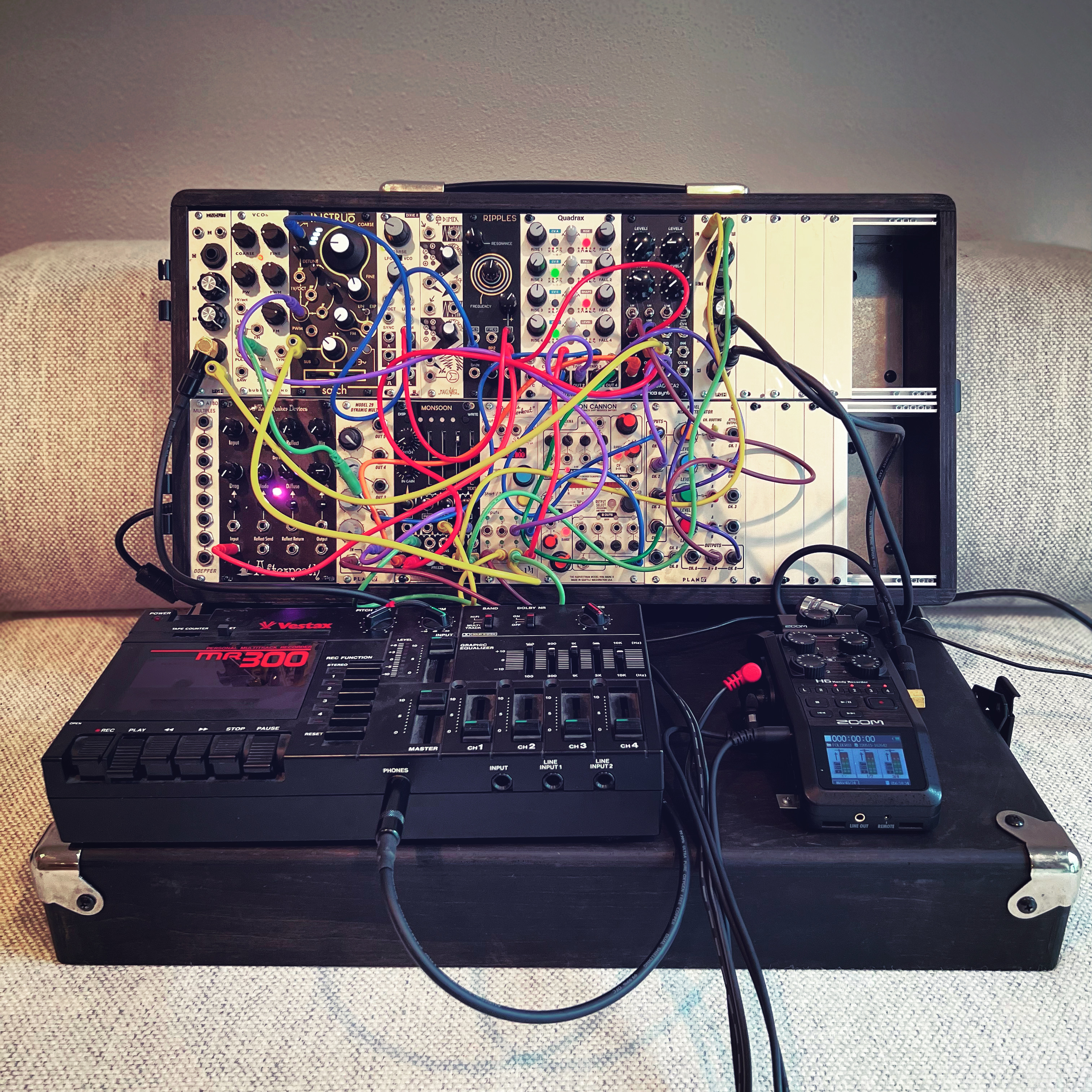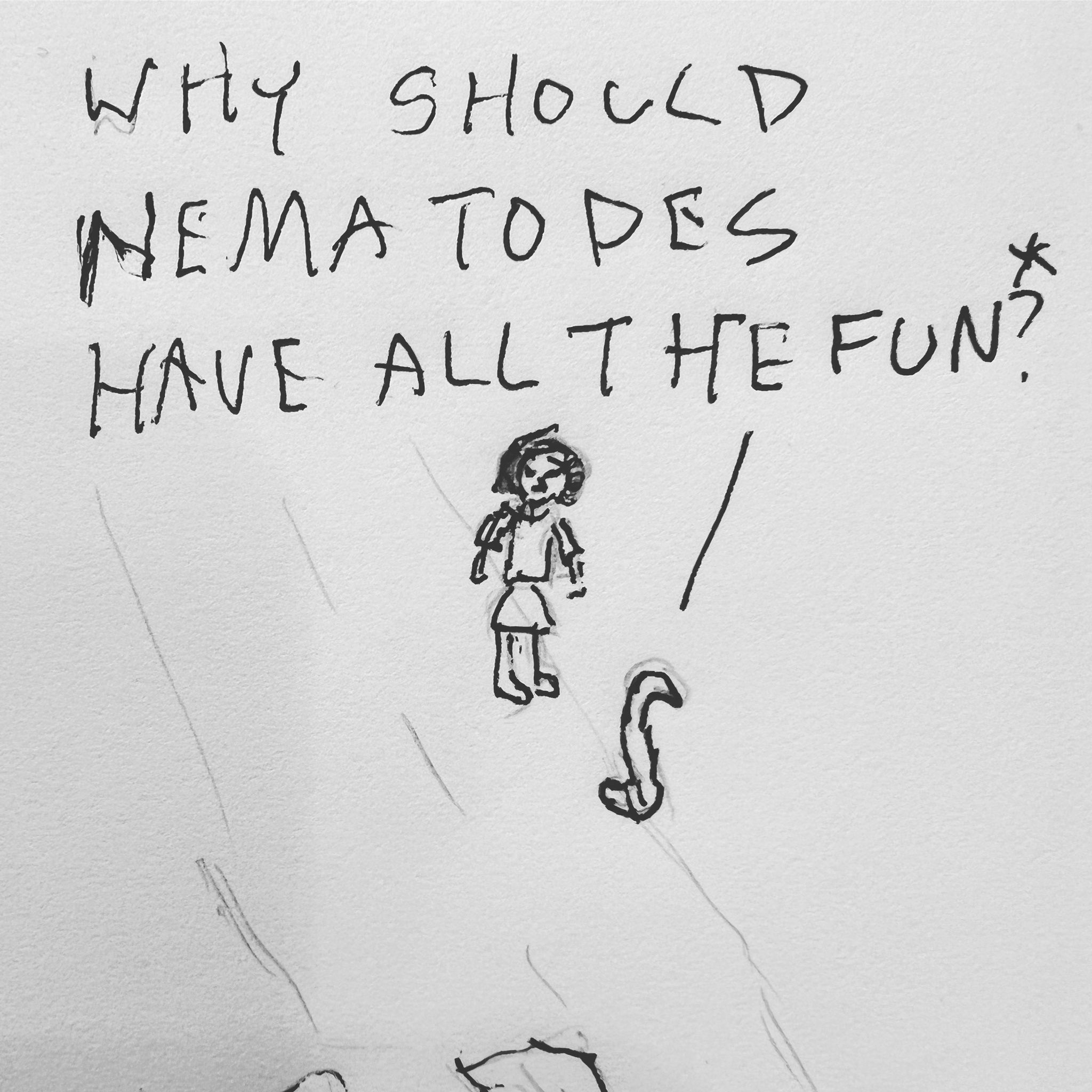Archive for 2022
-
a secret third thing
this is neither a year in review post nor a resolutions post, but a secret third thing.
-
grief and rage makes us do funny things
or at least makes us deal with abjection in new ways.
-
🔖 Caitlin Berrigan, "Kinship is Anarchy" –
This is the practice of being-with the kinships we do not choose—human and more-than-human. This is the practice of living inside of contradiction and contamination.
-
🔖 Hydra – Livecodeing networked visuals in the browser –
I somehow missed this when it dropped. There’s a new microgrants program, too.
Reminds me a lot of Cracked by Bill Orcutt.
-
🔖 Matt Schellhas, "Your Team Doesn't Need Eleven Goalies" –
At the core of it, this framing makes it clear — I build my teams to the benefit of the team.
-
I have a principled stance on incorporating information about gender in structured data: I do not think it should be added without a person’s permission, or without considering how the person would want it presented. I strongly believe that Wikidata’s P21 (sex or gender) property is a property that may violate the privacy of living people. One of my deepest frustrations about this in Wikidata is the prevalence of people and bots that add P21 statements by making strong assumptions based on a person’s given name. I have written and presented a lot about knowledge organization, autonomy, and liberation, and as such, I ask you to respect my privacy and not include this information.
-
It's not really leaving if you have somewhere better to be
2022 is proving to be a year of many profound changes. There are two big transitions going in my life: one professional, and one personal.
-
I’m hiring for a mid- to senior-level software developer to join our team at Stanford Libraries. We’re very remote-friendly, and we have great colleagues. Apply by August 19 for earliest consideration!
-
Mirador as a Workspace
-
Thrilled to receive such a thoughtful and complementary review from Frans de Waard for Black Tent’s Managed Retreat 10":
“Active listening … ambient on edge, spacious and down to earth. Ritual music … for an urban environment.”
#theStudio
-
I’ve been mulling over the idea of registering a RFC 1480-style locality domain under
.usfor a long, long while (think 20 years or more). However, it’s been pretty borked for over a good portion of that time. There’s a reasonable guide to obtaining a locality domain that was updated last year that relies heavily on archived websites (well, text files on HTTP servers) for critical resources.It’s honestly a bit disappointing; if this process were smoother, I’d argue it was a good prospect for a process of commoning aligned with the Indieweb ethos, but instead, it’s experiencing a bunch of obsolescence and subject to organizational failures and privatization. Entirely disappointing, but fundamentally unsurprising.
-
BLACK TENT - MANAGED RETREAT (10" by Imprecision)
-
Facilitating Practitioner-Led Strategic Planning in Times of Chaos
-
Including and Unleashing Everyone: Facilitation with Liberating Structures
Including everyone in a collaborative project can be a challenge in technology, as well as in many other fields. People may self-select out of conversations if they’re unsure that they can contribute. If you’re a manager or project leader, it can also feel intimidating to get people to start thinking and sharing ideas. What can we do to get people unstuck from those uncomfortable silences to be engaged, curious, and excited about the future? This workshop will focus on introducing participants to Liberating Structures, a facilitation methodology designed to include and unleash everyone. Using a series of 33 methods that can be sequenced and adapted to a variety of contexts, Liberating Structures provides a balance between freedom and structure to provide space for new ideas to grow and develop. The workshop will focus on about five specific methods from Liberating Structures, and participants will learn the methods in a hands-on setting by participating in the methods themselves. The workshop’s facilitators each have experience facilitating Liberating Structures sessions in their own institutions, and learned more by serving as facilitators on the IMLS-funded Lighting the Way project. -
🔖 Black Tent – "Managed Retreat" –
she’s here. orders are officially shipping for the Black Tent “Managed Retreat” lathe cut 10", with posters & digital downloads available
in addition, 100% of digital sales, and any profits past the minimum price on physical merch (posters, zines, records/tapes) will be donated to the National Network of Abortion Funds through May 15.
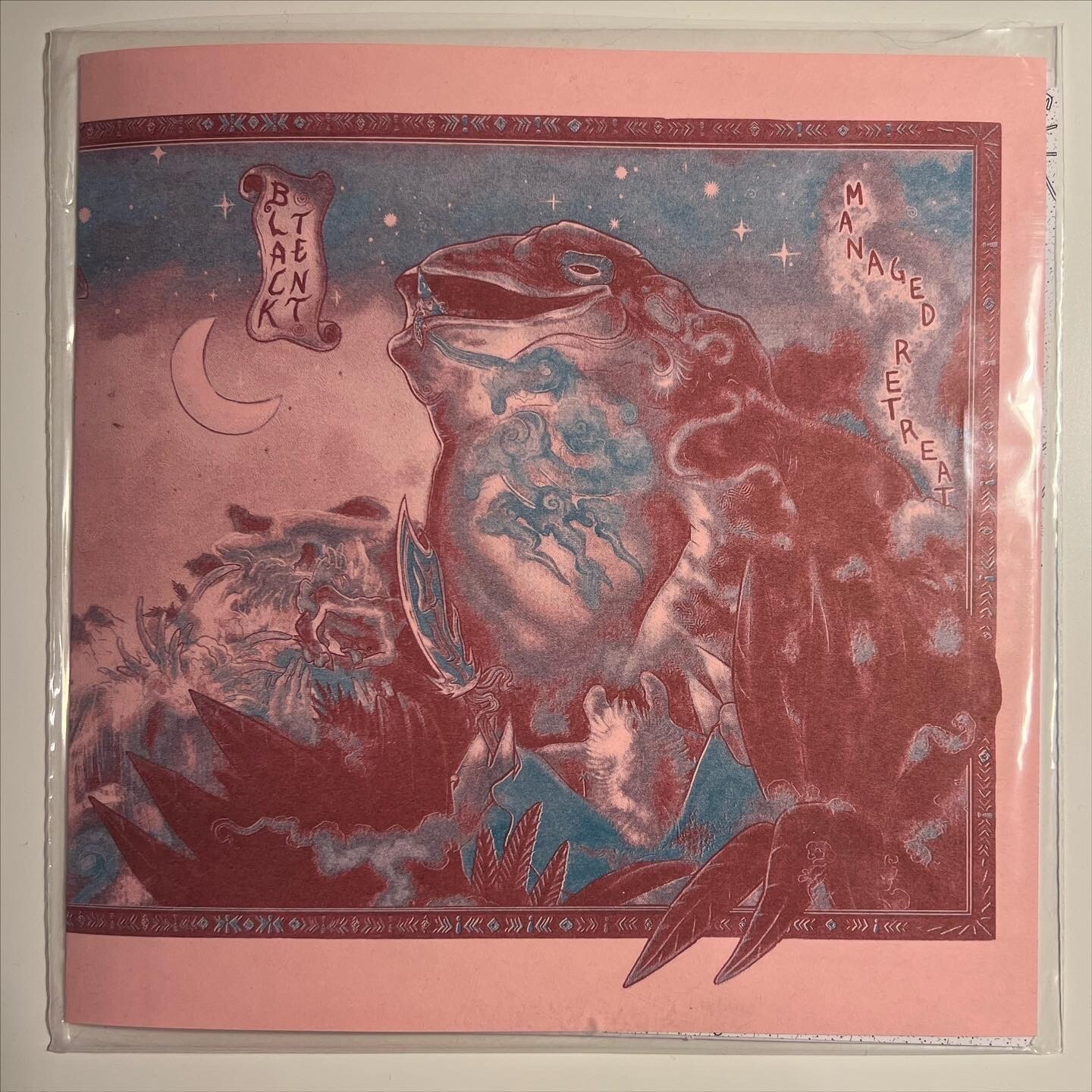
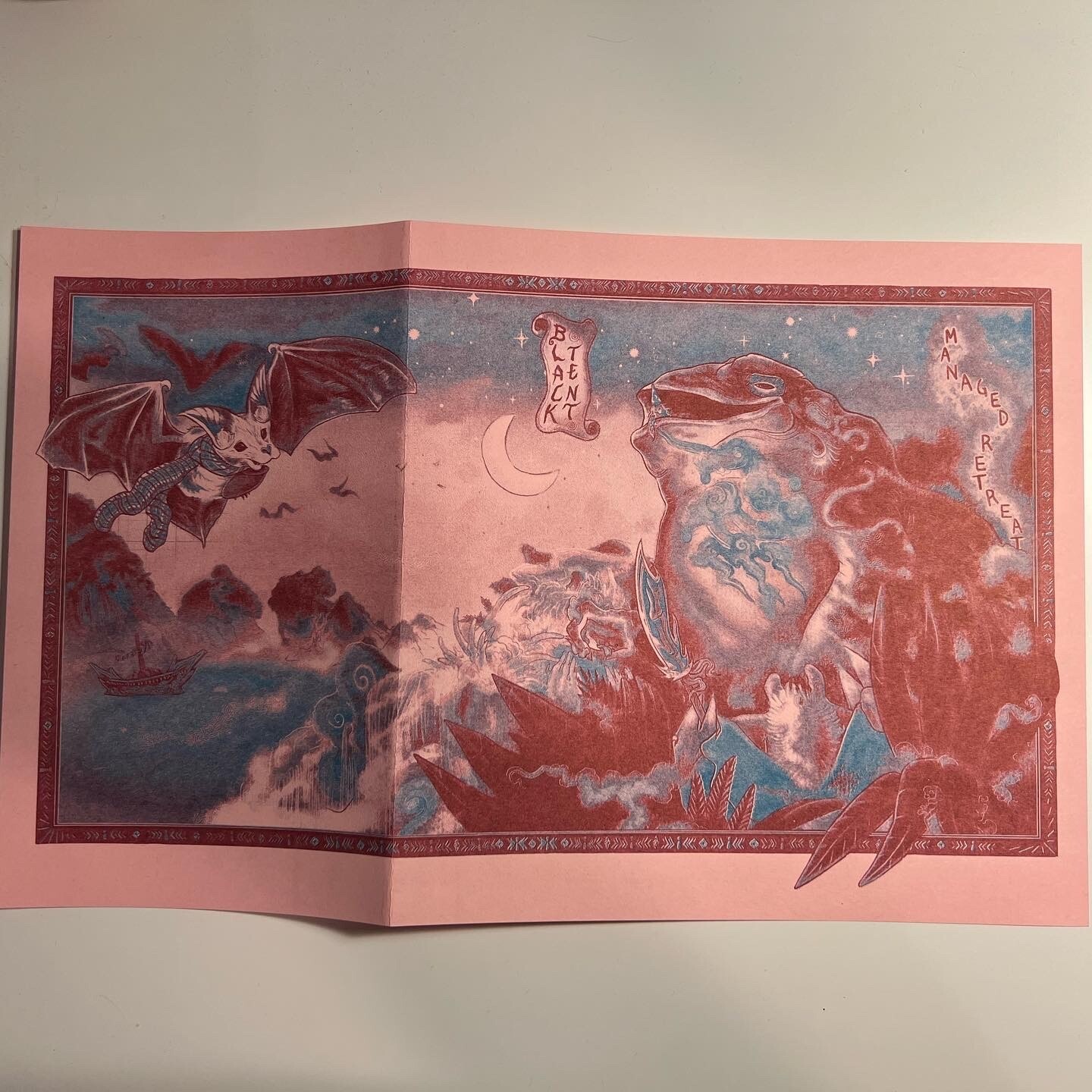
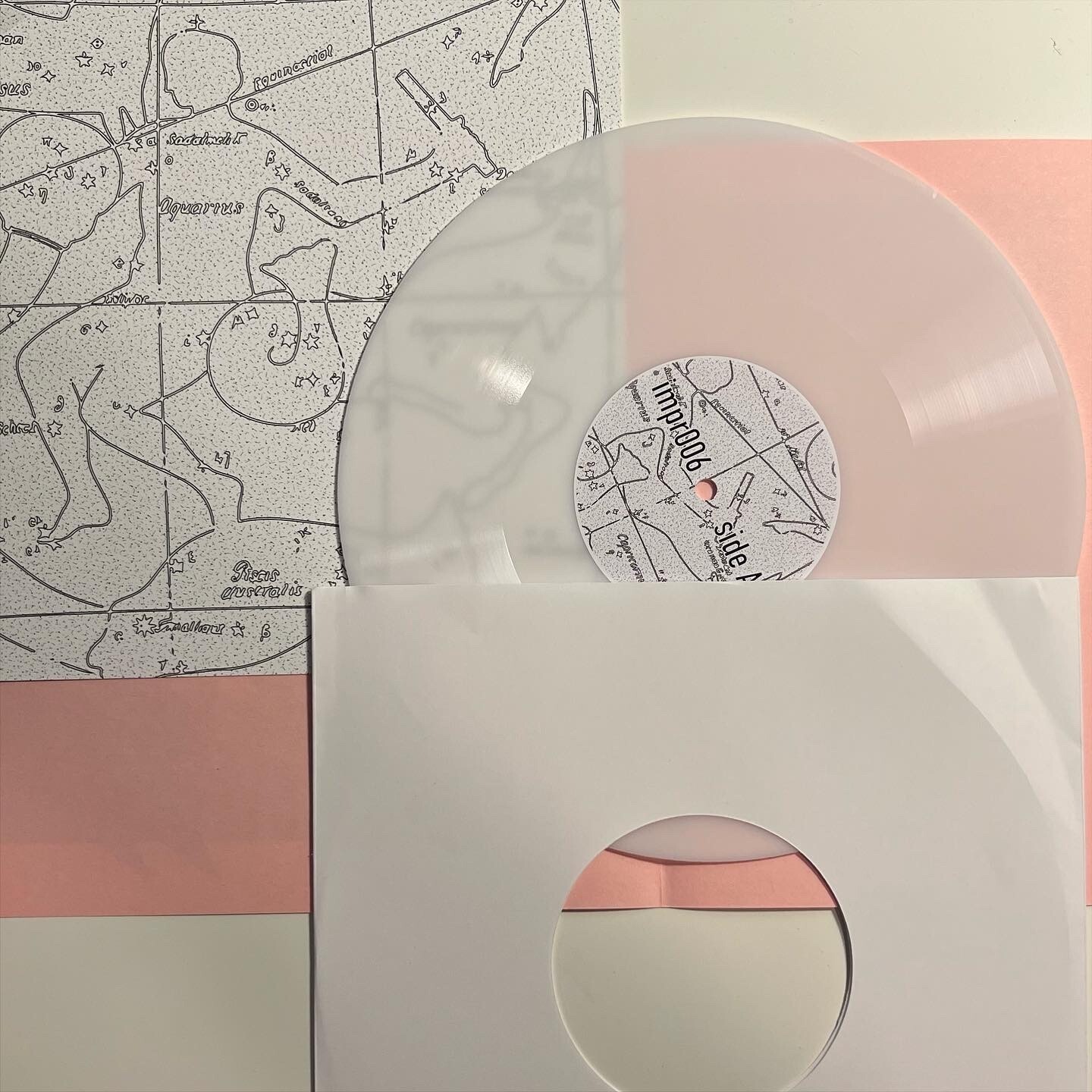
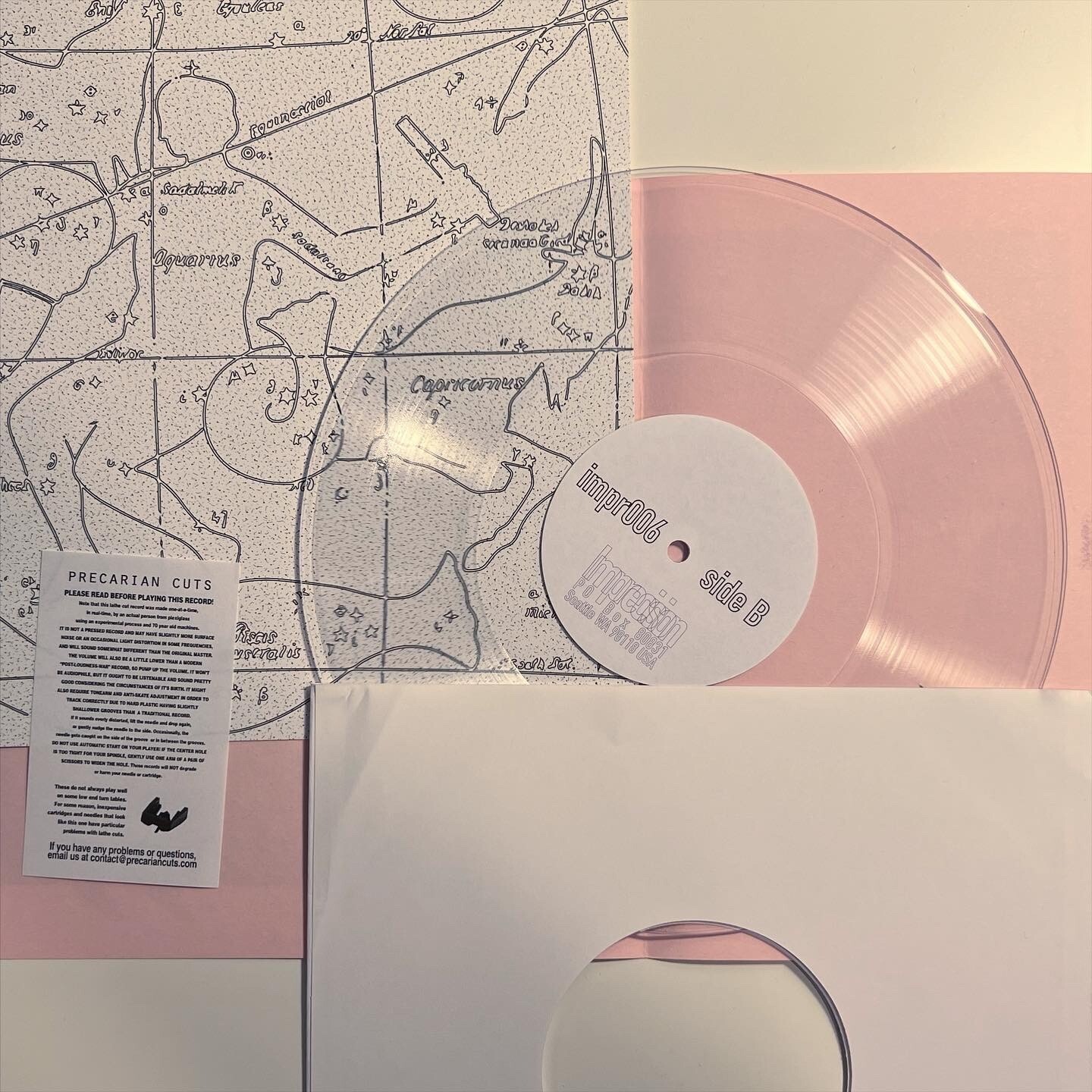
-
Black Tent - Managed Retreat
Composed and recorded December 2020-May 2021 and mixed May 2021-January 2022 in Seattle, WA by M. Matienzo. “a furtive world bats” and “a furtive world of bats, part 2” uses “Wind Chimes.wav” by casemundy on freesound.org. “Nashira” was composed for Ben Armintor. Mastered by James Plotkin at Plotkinworks. Lathe cut by Zack Hansen at Precarian Cuts. Cover illustrations by Acid Lich. Risograph print by Paper Press Punch. Thanks to C. Vadi and Paul Courtright for the Midwestern hospitality. This is Imprecision #6. impr006. Spring 2022. -
🔖 Yang et al., "Are You Really Muted?: A Privacy Analysis of Mute Buttons in Video Conferencing Apps" –
Using network traffic that we intercept en route to the telemetry server, we implement a proof-of-concept background activity classifier and demonstrate the feasibility of inferring the ongoing background activity during a meeting — cooking, cleaning, typing, etc. We achieved 81.9% macro accuracy on identifying six common background activities using intercepted outgoing telemetry packets when a user is muted.
-
🔖 Gomes and Barros, "The Bias in Ontologies: An Analysis of the FOAF Ontology" –
For the analysis, the theoretical framework of Discursive Semiotics is used, which studies the formation of meaning as a phenomenon from a model called Generative Trajectory of Meaning (GTM). From this perspective, we can understand bias as a product of semiotic processes – figurativization, thematization, and discursivization (Greimas and Courtés 2013) – involving the KOS developer social-cultural contexts (Gomes and Barros 2019a, 2019b). From this theoretical understanding, all the elements that constitute the FOAF ontology – classes and properties – are analyzed, as well as its documentation available online. We concluded that bias is an inherent feature of a KOS and that Knowledge Organization could focus on conducting studies on technologies that enable information retrieval, taking into account this aspect of its tools.
-
I absolutely love working with Acid Lich. Color comp of the risograph sleeve/poster art for my upcoming EP.
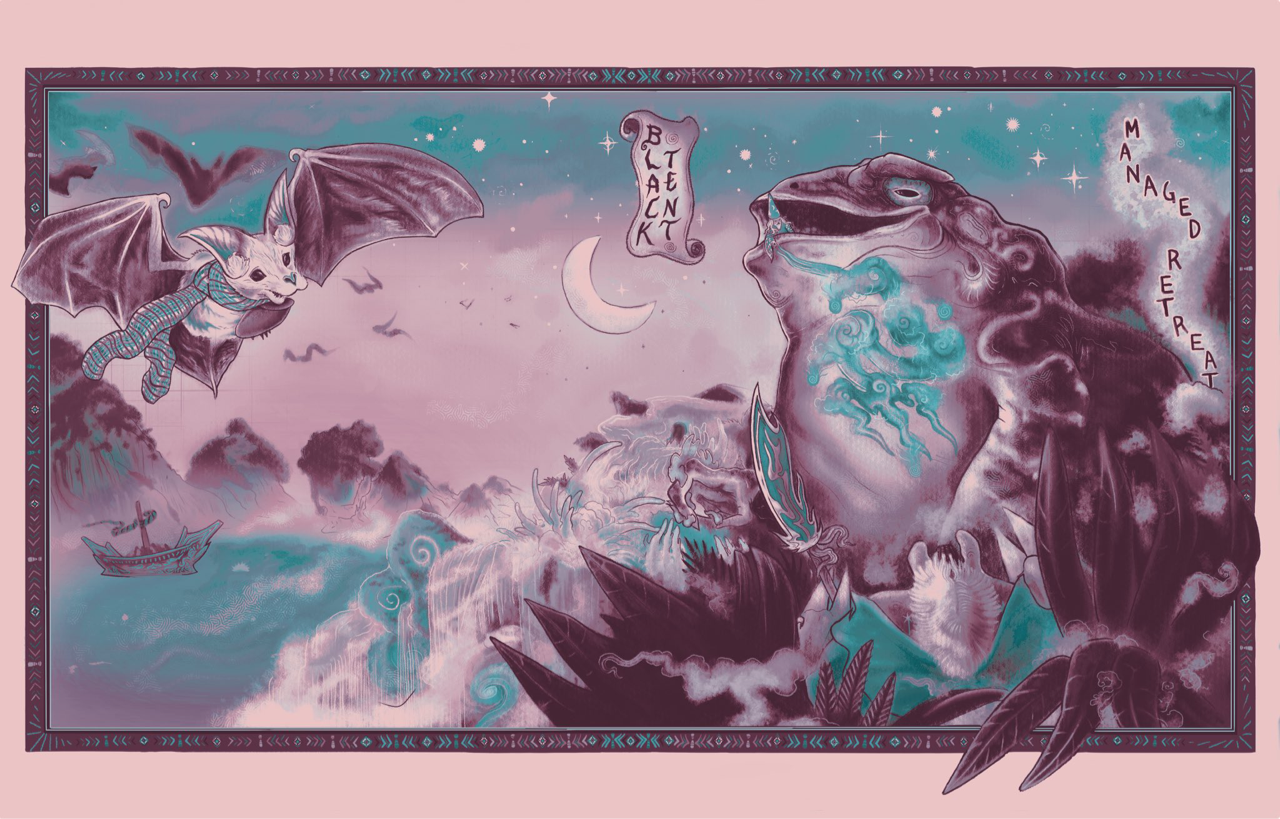
-
🔖 S.I. Rosenbaum: "His software sang the words of God. Then it went silent." –
For two decades, Jewish clergy across the country had come to depend on TropeTrainer to help prepare kids for their bar and bat mitzvahs, rites of passage in which young adults chant aloud from the Torah for the first time. But the software wasn’t just a study aid — it was a deep archive of sacred text and music, comprising dozens of different traditions, made easily searchable and infinitely customizable.
-
My partner let me take her 10-year-old MacBook Air after getting a newer laptop for herself. I’ve refurbished it for some basic use (email, web browsing, conference calls, writing/development) by installing a new battery and SSD.
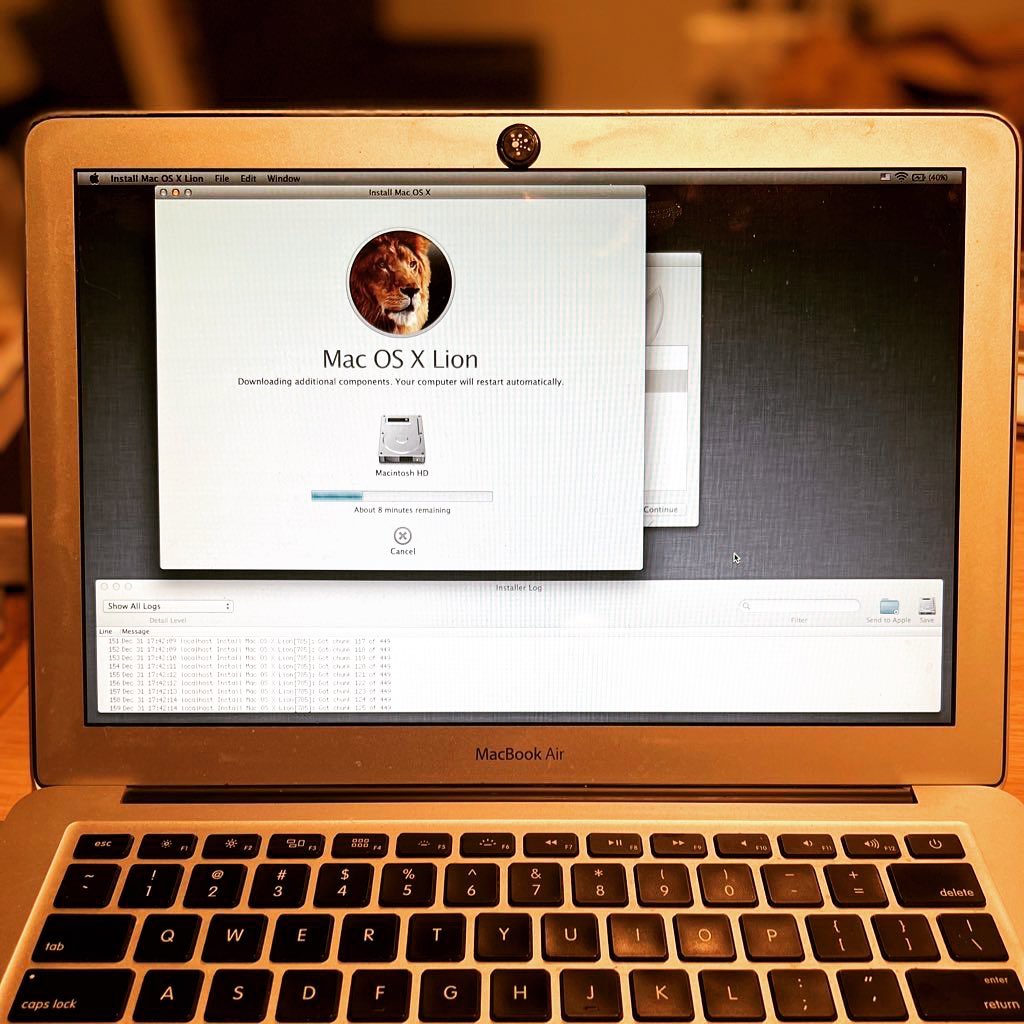
I had to install MacOS from internet recovery, and because of the age of the laptop, it started with Lion.
I admit some of the decision to do this was idle curiosity. My eight-year-old personal laptop, a 15" Retina MacBook Pro, doesn’t have a battery that’s easily user-replaceable without using solvents, so it’s nice to have a lightweight secondary machine that now has over eight hours of battery life under light usage.
I also admit I had the desire to reduce e-waste, so Kris De Decker’s Low Tech Magazine article on avoiding buying new laptops also inspired me. I’m curious to see how usable Mac OS 10.15 will be before I possibly partition the drive and install Linux to be able to dual-boot the machine.
-
🔖 Paris Marx, "False Futurism" –
The metaverse is a branding term with a similar aim as Web 2.0 — to make tech companies’ efforts to reinvigorate existing business models and carve out new ones seem forward-looking and new, while repackaging their leverage over people to compel them to adopt new products as a kind of benevolent leadership, if not a humility in the face of what people “really want.”
-
🔖 Media Websites: 70% of the Carbon Footprint Caused by Ads and Stats –
The results are insightful: up to 70% of the electricity consumption (and therefore carbon emissions) caused by visiting a French media site is triggered by advertisements and stats. Therefore, using an ad blocker even becomes an ecological gesture.
-
🔖 Ayanna Dozier, "Surveilling Bodies: Archives and Sex Work" –
Tourmaline’s film Salacia is a departure point for considering the interlocking forces of race, gender, and criminality in representations of sex work.
-
Colophon
This website serves comprehensive portfolio for myself, combined with a blog (“posts”), short snippets (“notes”), and other material. I use it to organize my thoughts and to remember things. This website is created using Hugo using the Lancet theme with site-specific refinements. The text is set in Work Sans, designed by Wei Huang. Content for the site is authored using VS Code, Zettlr, 1Writer and Netlify CMS and managed in a Github repository. The site attempts to apply Indieweb principles in a way that makes sense to me. I like structured data but I’m not dogmatic about it. It leverages Webmention.io and Bridgy heavily as a static site. New comments and interactions only come in through Webmentions. I use a lightly forked version of webmention.js to load them live from Webmention.io. Comments were previously managed by Disqus, but I migrated all the data out. The site is built and hosted on Netlify. The build pipeline is currently simple because I don’t like dealing with Node. -
🎵 Joel RL Phelps & The Downer Trio - "Pilot"
JRLP + D3 covering the song that got me into Silkworm.
-
🔖 Being Glue – No Idea Blog –
Your job title says “software engineer”, but you seem to spend most of your time in meetings. You’d like to have time to code, but nobody else is onboarding the junior engineers, updating the roadmap, talking to the users, noticing the things that got dropped, asking questions on design documents, and making sure that everyone’s going roughly in the same direction. If you stop doing those things, the team won’t be as successful. But now someone’s suggesting that you might be happier in a less technical role. If this describes you, congratulations: you’re the glue. If it’s not, have you thought about who is filling this role on your team?
Every senior person in an organisation should be aware of the less glamorous - and often less-promotable - work that needs to happen to make a team successful. Managed deliberately, glue work demonstrates and builds strong technical leadership skills. Left unconscious, it can be career limiting. It can push people into less technical roles and even out of the industry.
-
On finishing what you started
In the best of times, “year in review”-style blog posts can be inspiring and provide an important sense of closure. When it’s not the best of times, they can be painful reminder of your own misgivings and missteps. Time has moved differently over the last two years, and the calendar itself no longer feels like a good marker of even the progression of days and months that have intervened. But here I am, wanting for the closure that such a review would provide. It feels dissatisfying not to remember that I have finished many things over the last 13 or 14 months, but the struggle to articulate them all has been incredibly real. While I may not touch on all of them, the goal is to describe some highlights to help me retain some perspective.
-
No meetings week is a great time to dive back into Lara Hogan’s Demystifying Management training. Finished Building Resilience this morning, ready to tackle the other four modules.
-
🔖 know how your org works (or how to become a more effective engineer) –
Shielding non-senior engineers from organizational politics not just stymies their growth but also hinders their visibility into the skills they’d eventually need to learn the hard way, skills for which there exists no easy playbook, even if some managers and senior ICs might take a more short-sighted view and see this as a way to help other engineers “maintain focus”.
-
🔖 MillerTi.me | Supporting Hugo page bundles in Netlify CMS –
After some digging around I discovered a “beta feature” called Folder Collections Media and Public Folder. I was pleased to find out that I only needed to define a few new properties on my Netlify CMS config.yml’s
collectionsproperty to get it to recognize the new folder structure … -
🔖 The often unknown Stereo Recording Angle SRA –
A handy reference source for stereo imaging and mic setups.
The SRA is not the angle between the microphone axes, but an invisible angle, that gives you information about your stereo image. It tells you how “wide” the recording will sound. Every acoustic sources that are outside of the SRA will be located full at “L” or “R”. So a smaller SRA will give you a wider stereo image. Everything inside of the SRA will find a place between the left and the right speaker.
A stereo image is always due to time-of-arrival and / or level differences between the left and the right channel.

